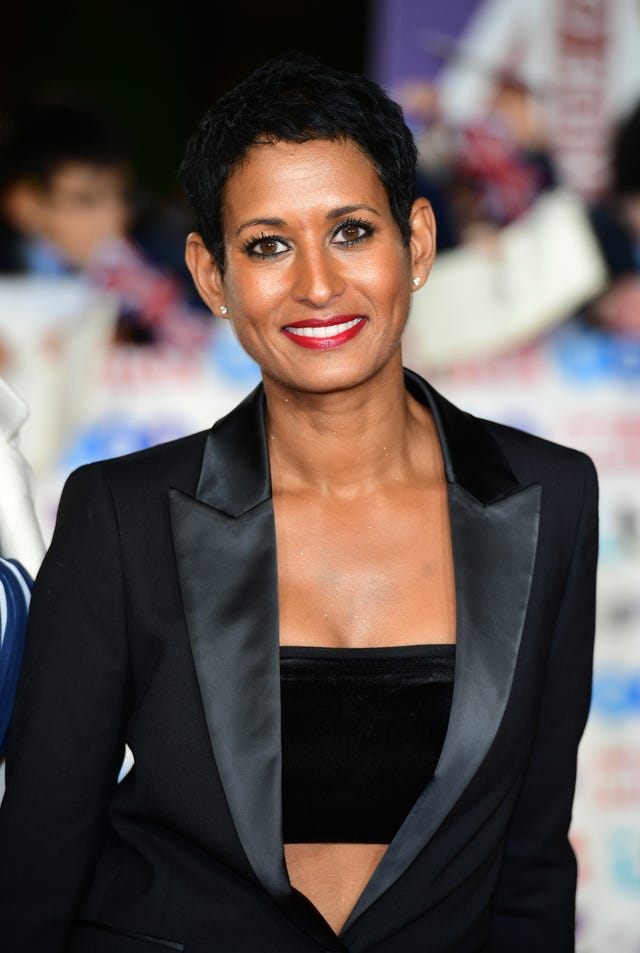BBC say presenters ‘reminded of their responsibilities’ following flag joke
The BBC said it had received complaints over the incident.

The BBC has said Charlie Stayt and Naga Munchetty have been “reminded of their responsibilities” following an interview with a Government minister which referenced the size of his Union Flag.
The broadcaster said it had received complaints from people who were “unhappy” about Stayt’s comments and Munchetty’s subsequent behaviour on social media following the incident on BBC Breakfast last week.
Munchetty previously apologised for liking tweets which she said were “offensive in nature about the use of the British flag as a backdrop in a government interview”.

A statement from the BBC on the complaints section of its website said: “At the end of a long, serious interview with the Housing, Communities and Local Government Secretary Robert Jenrick, Charlie Stayt made an off the cuff remark about the size of the flag behind Mr Jenrick.
“It was meant as a light-hearted, off the cuff comment and no offence or disrespect was intended.
“Naga and Charlie have been spoken to and reminded of their responsibilities, including the BBC’s impartiality and social media guidelines.”
After the interview, Stayt said: “I think your flag is not up to standard size, Government interview measurements.
“I think it’s just a little bit small, but that’s your department really. It’s just a thought.”
Mr Jenrick, who was speaking via video call from Westminster, did not respond.

When the camera returned to the studio, Munchetty was seen attempting to stifle her laugher.
She added: “There’s always a flag. They had the picture of the Queen though. In the Westminster office I am assuming.”
New director-general Tim Davie warned BBC staff over their use of social media in September last year.
The corporation later published new impartiality guidelines which warned employees not to bring the corporation “into disrepute” with their behaviour online.
These included guidance on avoiding bias through follows, likes or re-posting and shares, as well as tougher guidelines for some staff in news, current affairs, factual journalism, senior leadership, and a small number of presenters who have a significant public profile.





